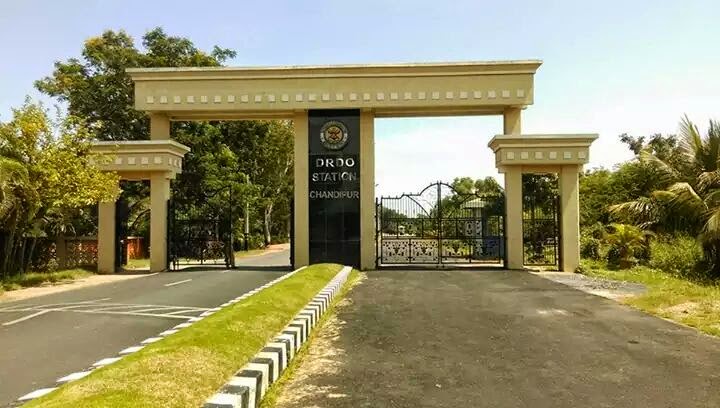My day started at 5 am in
the morning. I don't usually wake up so early in the morning but this was a
special day. I was included in an exclusive group of 30 students, who had been
invited by the college, to go on a trip to the Defence Research and Development
Organization in Chandipur, Balasore, Odisha, also known as Chandipur-on-Sea.
I was ready by 6 am and left the
hostel to proceed to the rendezvous. I was baffled when I learnt that a good
number of our college's higher authorities and faculty would also be going with
us, by another bus. We had our breakfast at a nearby food stall which had
cooked the first assortment of the day. With our tummies full, we boarded the
bus and our journey began. It was a sunny but breezy day so we were quite
comfortable. Everyone was extremely excited and in very high spirits. An
inevitable round of "Antakshari" left me embarrassed (because I don't
listen to many popular songs ...haha!) but everyone else sang in chorus.
A long ride of about 5 hours brought us to the
massive gateway of DRDO. Before we could grab the opportunity to click
"selfies" in front of it, we were inside the gargantuan complex. Our
buses came to a halt for getting passes to enter into the ITR (Integrated Test
Range) Complex. Previously it was called Interim Test Range. A large statue of
a man bearing a missile on his shoulder decorated the entrance. We were taken
to a building where we were ushered into a small seminar hall. A scientist lectured
us on test facility, its various organisational constituents, departments and
sections. We were briefed on the equipment used to track a missile during
testing and the various procedures involved during a test. Plessey surveillance
radar, electro-optical tracking system (mobile and fixed), S-band tracking
radar (KAMA-N) (mobile), C-band tracking radar (PCMC) (fixed), telemetry band
(fixed and mobile), range computer, close-circuit television system, photo
processing system, meteorological system, and range safety system, etc., are a
few of the equipment that we were briefed about. Then an official video of an
arsenal of Indian defence missiles like Agni (I-V), BrahMos, Dhanush, Lakshya,
Prithvi (I-III, Akash, Trishul, Nag, Shaurya, Astra, Nirbhay, Prahaar, Helina etc.
that were tested here, was shown. Excitement was overt in the audience.
After that, we had our lunch at
the DRDO guest house which stands just next to the Balasore beach under DRDO
territory. Everyone quickly finished their lunch and moved to the beach to find
out about the rumours they heard about it. It is such a beach that one could
walk a kilometre into the water and yet the water level would only be ankle
deep. Lots of photos were taken and selfies overflowed in the mobile galleries.
Once we were done with it, we boarded the bus to scout the territory.
All of a sudden, a series of loud
bangs made everyone jump in their seats. We were asked to relax as the sound
was emanating from the Proof and Experimental Establishment (PXE), a test range
for non-missile munitions, where no outsiders are allowed. The massive expanse
of the campus took us a solid 45 minutes to roam. Then we went to the launch
complex from where the first BrahMos was fired. It was home of two launchers.
One for vertical firing and another for mobile launching. It was enthralling to
behold the magnificent equipment. We were told how the shed of the vertical
launcher moves out to allow the launcher to orient itself for the launch. There
were Electro-Optical Trackers and RADARs positioned nearby. There was a
camouflaged bunker in the launch complex from where the missile launch can be
directly controlled. The Indian UAV Lakshya is also sent for test flights from
the same complex. Soon after, we were back on the bus and as the sun edged
west, it was time for us to return.
The journey back to our college was uneventful except for a
stop at a hotel where we had refreshments. Throughout the journey we discussed
how amazing our visit was and we looked forward to tell our experience to
friends who couldn't visit the facility. All in all, the trip was a memorable
one which gave us much to think about and consider a career in research and
development.






No comments:
Post a Comment